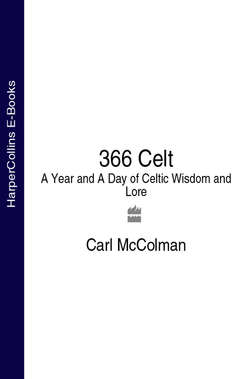Читать книгу 366 Celt: A Year and A Day of Celtic Wisdom and Lore - Carl McColman - Страница 33
26 THE PATH OF NATURE
ОглавлениеSaying that the ancient Celts were pagan is kind of like saying that they were Celts: we’re using a word to describe them that did not originate with them. It was the Greeks who named the Celts, and the Roman Christians who coined the religious meaning for the word pagani, which originally suggested civilian or country-dweller. But the country-dweller sense of the word means that it is not entirely inappropriate—after all, the Celts had no cities until the Romans or Vikings or Normans came along and built them. As a rural people, they naturally found their spiritual compass in the waters of the sea, the whispers of the wind, the fertility of the land. Their faith certainly was not “pagan” in the later pejorative sense of amoral or superstitious, but rather embodied a profound sense of being held in the embrace of the wild earth, her raging seas, and her abundant life. The pre-Christian Celts were likely animistic—regarding everything as imbued with spiritual presence. This survived after the arrival of Christianity, where heaven and the presence of God were seen not as removed from the natural world, but intimately interwoven within it. Nature was seen not just as an image of beauty—she truly embodied Divine love and grace.
